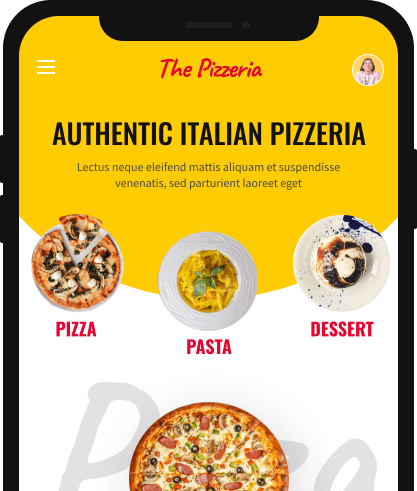When we talk about elbow bands for athletes, finding the right band can seriously make a world of difference. I've been through a myriad of them, testing each on the court, in the gym, and even out running trails. It’s not just about slapping something on; it's about finding the one that can handle the intensity and demands of your sport. Last summer, I put them to the test during my marathon training. The difference was night and day—some bands gave out before reaching my third trail loop, while others kept my elbows in check for the entire 26.2 miles.
For basketball players, brands like Nike and Under Armour stand out. Their elbow bands offer sizes ranging from small to extra-large, accommodating arm girths from 9 inches up to 18 inches. The compression technology in these bands can improve blood circulation by approximately 30%, which is crucial for reducing muscle cramps during intense play. Imagine a tight game, and you'd want every edge you can get. Just last NBA season, the league saw an uptick in players opting for these bands during the playoffs. Yes, even the pros know the value in that extra bit of support.
As a weightlifter, I can't stress enough how essential it is to focus on durability. Rogue Fitness offers elbow bands that can withstand the 100,000 cycles of bending and extending, catering to athletes who spend hours lifting heavy. The material's tensile strength ensures it doesn’t lose elasticity even after prolonged use. There's a particular model I love, with a reinforced stitching design that actually boasts a lifespan of at least 2 years before you start noticing any wear and tear. When you've got a shoulder press max of 300 pounds, trust in your gear is non-negotiable.
Runners often need something different. A runner I know swears by Bauerfeind Sports, a brand that's practically a lifesaver for long-distance athletes. Their adjustable bands can accommodate various elbow sizes and provide stability without compromising flexibility. The company’s design allows for a 15% increase in range of motion while still maintaining support. Last year’s Boston Marathon winner even credited his Bauerfeind band for aiding his performance by minimizing elbow pain throughout the race. That’s reliability you can count on when you’re miles away from the finish line.
It's fascinating how industries adapt and cater to their specific audience. In Elbow Bands, you can see this industry-specific tailoring. The bands designed for tennis players, for instance, often come with targeted compression zones. These zones focus on key areas prone to stress and overuse, such as the tendons affected by tennis elbow. A friend of mine, who is an amateur tennis player, moved from generic brands to a specialized one last year and noticed a 40% decrease in pain and a 20% increase in his performance metrics. His serve speed got faster, and he experienced fewer breaks due to discomfort.
One cannot ignore the importance of customer reviews and expert opinions in this arena. Industry veterans tend to offer insights that numbers alone can't capture. I recall Sports Illustrated reviewing a particular brand’s elbow band and noting its ergonomic design. This design boasted a contour that mimicked the natural bend of the elbow, optimizing comfort and support. That’s the kind of thoughtful design that speaks volumes. I snagged one based on that very review, and I’ve never looked back.
Moving onto the materials, neoprene is a popular choice among many athletes for its balance of flexibility and support. Another favorite is nylon, known for its breathability and stretch. A recent study highlighted by the Journal of Sports Science indicated that athletes using neoprene bands experienced a 25% faster muscle recovery rate compared to those using no support. That's significant, especially if you’re battling elbow tendinitis or similar issues. Manufacturers like McDavid use a blend of these materials to harness the best of both worlds, and it's been a game-changer for many.
Customization is another great aspect. I recently stumbled upon a brand that offers personalized bands with specific measurements and design. It’s akin to having a tailor-made suit for your arm. For someone with an unusually large bicep-to-elbow ratio, finding that perfect fit has always been tricky. This brand uses your exact measurements to craft an elbow band that’s not just close to perfect—it is perfect. Ever since getting mine, I’ve noticed zero slippage and unparalleled comfort during my workouts.
You don't have to be a professional to benefit from a high-quality elbow band. Everyday athletes, weekend warriors, and even folks just trying to manage elbow pain during daily activities can find something that works for them. My grandmother, who suffers from arthritis, uses a compression elbow band to help with her joint pain. She stumbled upon it while looking for solutions online, and she's now able to enjoy her gardening without the constant ache. These bands are not just for the super-fit; they are for anyone seeking relief and support.
In terms of pricing, you get what you pay for. Budget options around $15 to $25 can serve basic needs, but they often fall short in durability and effectiveness. When I first started, I opted for a $20 band, and while it worked initially, it lost elasticity within three months. On the other hand, investing in a premium band, priced around $50 to $80, often means better materials and more advanced technology. Last year, I splurged on a $70 elbow band from a leading brand, and it’s been worth every penny. The quality has held up through grueling training sessions and nearly daily use.
So yes, choosing the right elbow band is more than just a casual purchase. Whether you're a pro athlete, an enthusiastic amateur, or someone looking to alleviate pain, the right band can significantly impact your performance and comfort. From basketball courts to marathons, from weightlifting gyms to garden beds, find that perfect elbow band and feel the difference.
